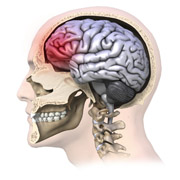Research and Innovation, UNL Office of

Center for Brain, Biology, and Behavior: Faculty Publications
Document Type
Article
Date of this Version
2017
Citation
Obesity (2017) 25, S17–S25.
Abstract
Objective: This paper reviews the state of the science on psychological and neural contributions to appetite self-regulation in the context of obesity. Methods: Three content areas (neural systems and cognitive functions; parenting and early childhood development; and goal setting and goal striving) served to illustrate different perspectives on the psychological and neural factors that contribute to appetite dysregulation in the context of obesity. Talks were initially delivered at an NIH workshop consisting of experts in these three content areas, and then content areas were further developed through a review of the literature. Results: Self-regulation of appetite involves a complex interaction between multiple domains, including cognitive, neural, social, and goal-directed behaviors and decision-making. Self-regulation failures can arise from any of these factors, and the resulting implications for obesity should be considered in light of each domain. In some cases, self-regulation is amenable to intervention; however, this does not appear to be universally true, which has implications for both prevention and intervention efforts. Conclusions: Appetite regulation is a complex, multifactorial construct. When considering its role in the obesity epidemic, it is advisable to consider its various dimensions together to best inform prevention and treatment efforts.
Included in
Behavior and Behavior Mechanisms Commons, Nervous System Commons, Other Analytical, Diagnostic and Therapeutic Techniques and Equipment Commons, Other Neuroscience and Neurobiology Commons, Other Psychiatry and Psychology Commons, Rehabilitation and Therapy Commons, Sports Sciences Commons


Comments
© 2017 The Obesity Society.
doi:10.1002/oby.21789